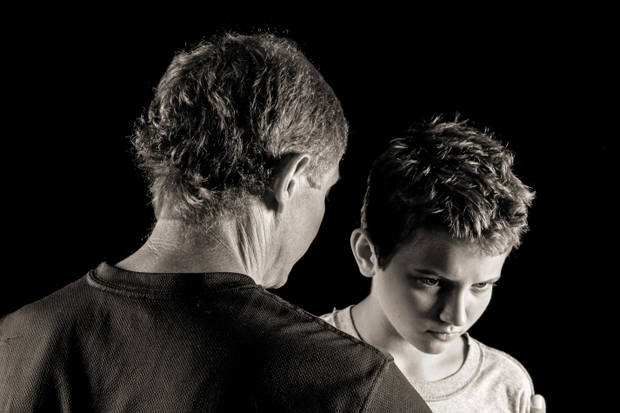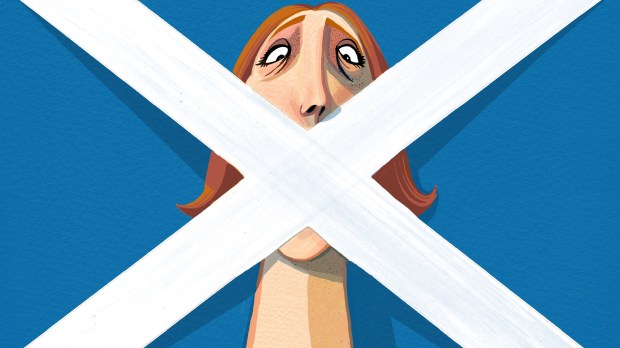Mental health is a slippery concept at best and according to the annual prevalence rates given in the latest Diagnostic and Statistical Manual of the American Psychiatric Association, people in north America and Europe suffer from an average of about two-and-a-half psychiatric conditions a year. This suggests that either we are all mad or the American Psychiatric Association is mad (though with a shrewd eye to the main chance).
It is hardly surprising then, since the child is father to the adult, that at least 10 per cent of children in Britain suffer from ‘diagnosable mental disorders’, to use a phrase much favoured in the press. Given the way that mental disorders are diagnosed, more or less by checklist, I am surprised that it is so few. Using the right methods, you can get any figure you think of. That is why we should view ‘crises’ in mental health, such as that recently touted, with caution and scepticism.
Nevertheless, casual observation would suggest what surveys have also found, that children in Britain have a more difficult and less attractive existence than children in any other comparable country in Europe. The British seem to be more afraid of their children than any other people known to me; they often seem to shrink from them in the street. Their method of child-rearing — I speak grosso modo, of course — seems to be neglect tempered by overindulgence, with outbursts of exasperation. Never have I seen elsewhere such public shrieking at children by maternal termagants as in Britain. Tenderness towards children is much less in evidence in Britain than in, say, France.
Perhaps it has always been so, for deep cultural reasons. But children nowadays are subjected to new habit-forming pressures that pile Pelion on their Ossa. A high proportion of British children, for example, scarcely ever eat a meal with another member of their family, and so learn to graze, often constantly, in solitary fashion, almost always on junk or prepared foods. A brief survey of the litter in streets that has made Britain the litter-bin of Europe reveals the new truth about the national character, that an Englishman’s street is his dining room. An experiment performed at Feltham Young Offenders’ Institution showed that vitamin supplementation of new prisoners’ meals reduced disciplinary problems very considerably: in other words, they were malnourished when they arrived. This does not reflect very well on British motherhood; and the failure to learn how to eat as a social activity is no small matter. Among other things, the solitary, nasty, British and short manner of eating teaches that the appetite of the moment should be the determinant of whether one eats or not: and since appetite grows with the eating, it is hardly surprising that increased rates of obesity result. Britain is the fat man of Europe.
The pattern of family structure, if that is quite the term for it, is partly responsible for the solipsistic hunter-gatherer (more gatherer than hunter) way of eating in Britain. It used to be said that three-quarters of British children have a television in their bedrooms. If so, there are more children with such televisions than with their biological fathers living at home.
The subject of fatherhood is a sensitive one: in some areas of the country to ask who a child’s father is has become indelicate. More than once when I made enquiry of a youngster as to his father, he replied, ‘Do you mean my father at the moment?’ Not every stepfather is bad, of course; most, indeed, are not. But there is little doubt that serial step-fatherhood is not the ideal arrangement from a child’s point of view.
Tina Nash was a woman whose eyes were put out barehanded by a monster of the name of Shane Jenkin. She had had two children by different fathers when she met Jenkin. In her autobiography, she said that she loved them and I have no doubt that she did, which makes the following story all the more revelatory of an astonishing maternal incompetence that derived not from lack of intelligence, but from a certain Weltanschauung. Her love for her children did not prevent her from leaving them one night in the care of Jenkin, an evident psychopath whom she knew had served four years in prison for causing a man severe brain damage and who spent his time watching videos of the most appalling violence, for instance of men putting women’s eyes out (he had many other terrible characteristics, including that of beating her in front of the children). When she came home from her night out, she went to bed so drunk that when she woke the next day she did not know that she had vomited in her bed. She then went downstairs to find Jenkin having sex with another woman.
Never once did it occur to her that perhaps this was not an ideal introduction to human life for her children, though — I repeat — she genuinely loved them (if she had not, the story would have been less alarming). And though this story is extreme in its content, it is by no means unusual in its form. It is inspiring in its way that so many children emerge from such a background comparatively unscathed; but it is not surprising that many do not. The loss of parental common sense astonishes me.
There are, of course, other difficulties that many children have to face. Anyone who has followed internet commentary after the publication of an article will have noticed how soon and how often those discussions decline into vile insult and abuse, not only or even principally of the author of the article, but of the other contributors to the commentary; and if this is the use that supposedly mature adults make of their ability to communicate their thoughts to the world, it is hardly surprising that immature young people follow suit and take what is written about them deeply to heart.
In other words, most of the emotional turmoil of young people, which is said to have increased dramatically in recent years, is the consequence not of genuine illness as diagnosed by mechanical checklists but of the way we live and bring up children, of the pressures put upon them and the values we espouse and communicate to them. To expect psychiatrists to undo the damage we inflict is flattering to their self-importance and supposed powers, and of course an employment opportunity, but it is unrealistic and harmful in its cultural effect, for it amounts to an evasion. In practice, it will probably lead to the mass drugging of children.
Got something to add? Join the discussion and comment below.
Get 10 issues for just $10
Subscribe to The Spectator Australia today for the next 10 magazine issues, plus full online access, for just $10.
Theodore Dalrymple’s Admirable Evasions: How Psychology Undermines Morality is published this week.
You might disagree with half of it, but you’ll enjoy reading all of it. Try your first month for free, then just $2 a week for the remainder of your first year.















Comments
Don't miss out
Join the conversation with other Spectator Australia readers. Subscribe to leave a comment.
SUBSCRIBEAlready a subscriber? Log in